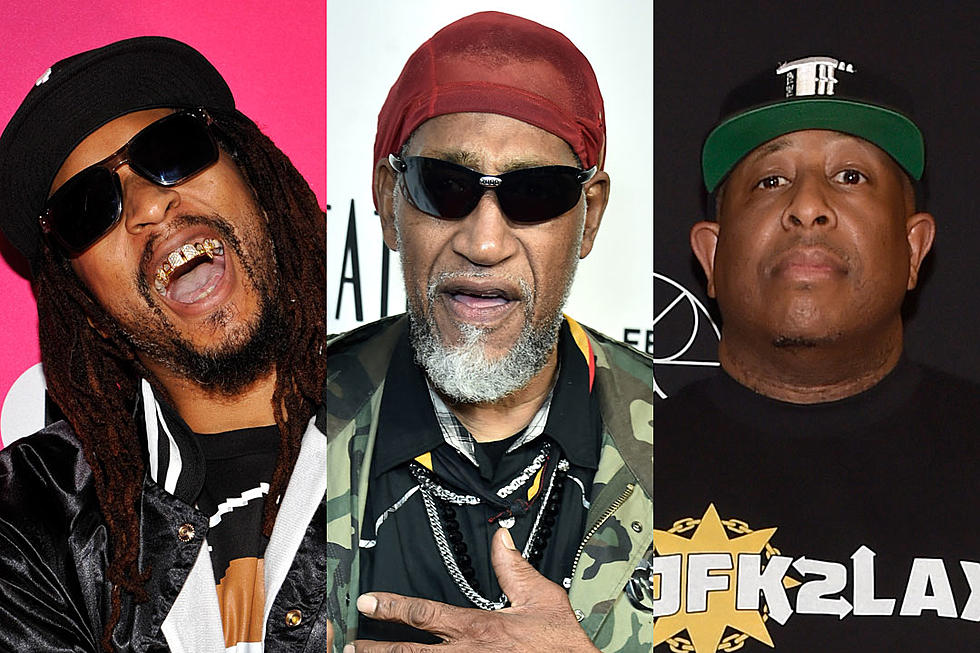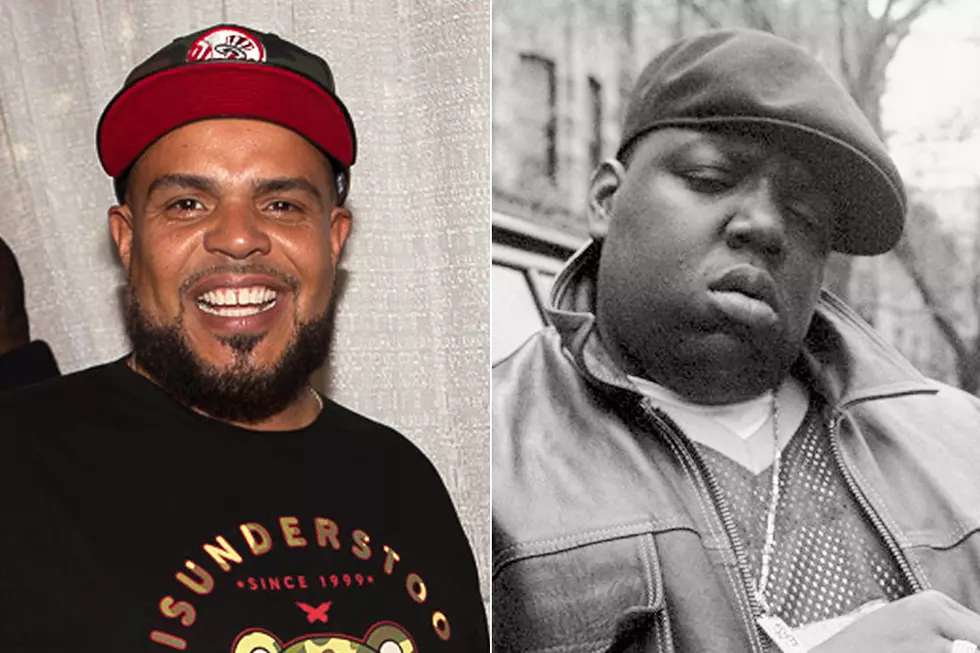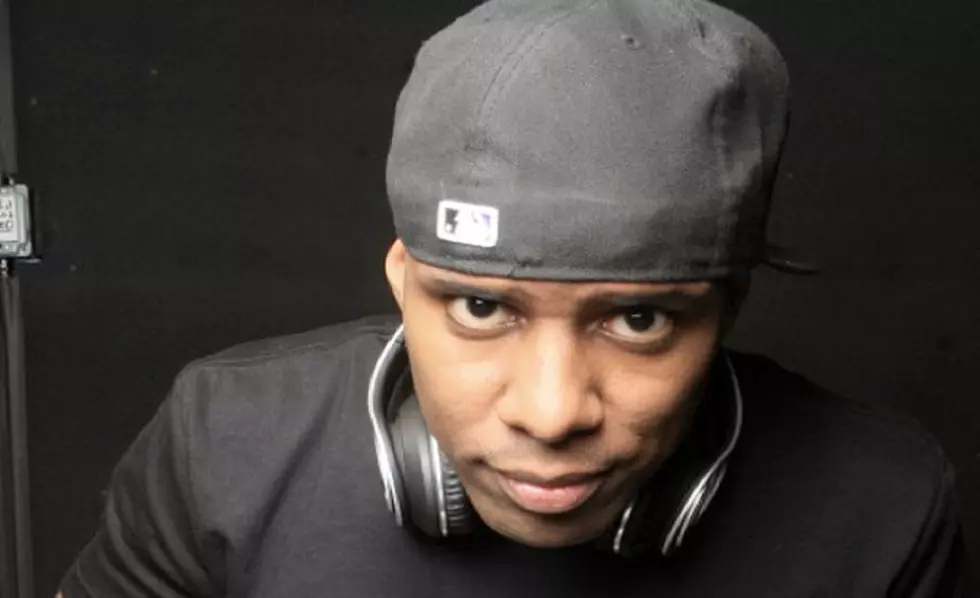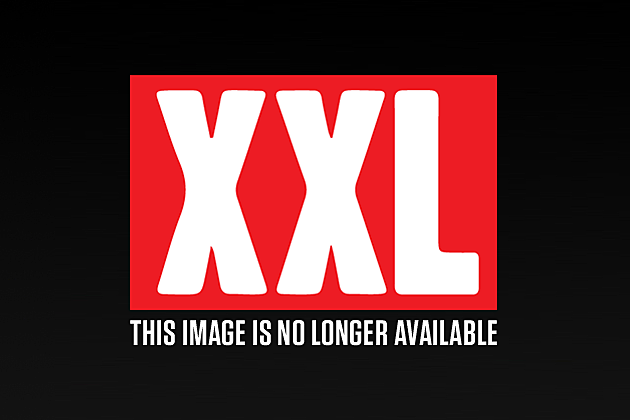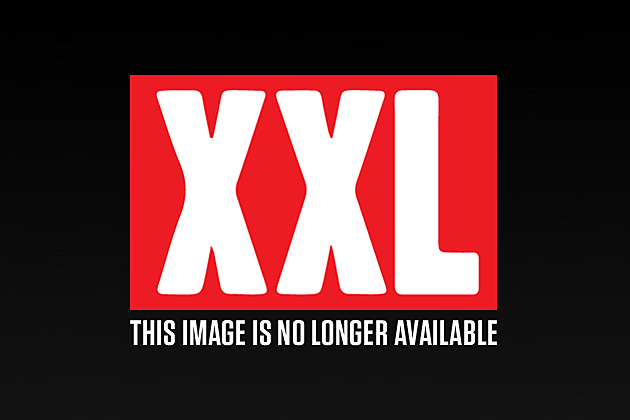A Roundtable Discussion With DJs Felli Fel, Enuff, Irie and Quicksilva
This past August, Pepsi kicked off the fourth year of their "Month in the Mix" campaign, and highlighted prominent DJs from different cities in the United States. The Pepsi DJ Division consists of Clinton Sparks (Boston), DJ Drama (Atlanta), DJ Enuff (New York), DJ Pharris (Chicago), Eric Cubeechee (Los Angeles), Felli Fel (Los Angeles), Irie (Miami), and Quicksilva (Washington D.C.). The campaign saw Pepsi conduct events with each DJ in their respective city, in an effort to showcase and pay homage to one of the most important, vital, and original elements of hip-hop culture.
I got some of these DJs- Felli Fel, Quicksilva, Enuff, and Irie- on the phone recently for a big conference call, and we got the chance to build about Pepsi's "Month in the Mix" campaign, but perhaps even more importantly, the state of DJing in contemporary urban culture.
Scratch: DJ Irie, how long have you been involved with Pepsi's "Month in the Mix" campaign?
Irie: I’ve known about the program since day one, but I officially joined as a member and DJ this year. We did some pre-planning and meetings earlier on, in the beginning of the summer, but June of this year is when it officially kicked off.
Scratch: What was your experience like being involved?
Irie: In my career I’ve worked with a lot of great brands. This is the first time I’ve been a part of something that’s been such a great collective of world respected DJs from across the country. For a brand that really gets it, that gets what we’re about. [It’s the fact] that they’re here supporting our culture, the DJ culture, and our artform.
Scratch: Walk me through your event in Miami.
Irie: There’s one DJ in the Miami in particular, a guy by the name of Kool G, who when I first started going out and hitting the clubs, he was one of the first DJs on the air at my station. I was able to say I wanna have Kool G at this event, I wanna have him rocking out. I wanna be able to let the people of Miami know that I’m here to stay, but it’s a big thing. So big respect to guys like Kool G. It was DJs from all over the city who came out to this event. It wasn’t just a DJ Irie thing, or a Kool G thing. It was a DJ thing.
Scratch: Who were some of the local artists that performed?
Irie: It was like a lot of the local artists who are just coming out. You know when there’s an artist that has a big regional record that are just waiting to pop on the national scene? Like Bizzle, who has a record “Naked Hustle," which is tearing things up down here.
Scratch: Quicksilva, how was the Pepsi Month in the Mix event that took place in DC?
Quick: The event was held at this spot H2o. We had a live performance from Shabba Ranks, which was incredible because that was his first time performing in DC in like forever. didn’t announce it till the day of. I had Roc Raida, who came to do the DJ set. We had some this hip-hop old school dance crew from New York- the Retro Kidz.
Scratch: Why did Pepsi decide to get involved with DJs instead of artists, producers, or executives?
Quick: DJs are the new artists. DJs are more popular now than a lot of rappers. In the music biz, in 90% of the big markets the DJ is bigger than the rapper. There’s really no big rappers besides Lil Wayne. Every market has a big DJ but every market doesn’t have a big rapper. If you come to DC, Quciksilva is bigger in DC than any rapper could ever come to DC. DJs are hot right now. Rappers are NOT in right now.
Scratch: How do you deal with some of the criticism that has been directed at DJs lately? There was a video with Jermaine Dupri saying the DJ is dead.
Enuff: JD was just talking about some personal shit that him and Greg Street been going through for years. It just so happens that it was a powerful DJ and a powerful rapper. Actually I don’t see JD as a rapper, I see him as a business man. I think they both have their points.
Scratch: Moving forward, where do you see the DJ in the digital era, where records are breaking online, how does your role change?
Enuff: It’s already changing. For the most part, we’re not just DJing on the radio. The majority of us have 2nd, 3rd, or 4th jobs. We’re interviewing people on television. We’re interviewing people on the internet. We’re on internet radio now. We’re producing. We’re just growing. Even if the state of our hip-hop DJness is prehistoric and dying, what we can do is just reinvent ourselves over and over again.
Scratch: Anyone else care to chime in on how the role of the DJ is changing.
Quicksilva: I think the whole internet and online thing has in some cases helped DJs. With Myspace and Facebook, what I do with my interns is get them to go on these sites and find out what’s on their pages. Besides just breaking new music, if I wanna know what the hits are or what the next records that the high school or college girl wants to hear– who is my audience– I can go to Myspace or Facebook and say, I notice on these top 10 chicks on Myspace, this song is on their page. And this is a song we’re not playing on the radio. So I can go back to my Program Director and say, we’re not playing this MIA record, or this record that we usually might not have played on a urban or crossover station, and we should play it because this is the most downloaded record on Youtube, or on Itunes or Myspace.
Felli: Obviously we’ve all been playing all these Lil Wayne records from his album. The one record I wasn’t playing was “Mrs Officer.” The other day I went and looked at what our T1 listeners, what their top 10 songs were on Myspace, and “Mrs Officer,” out of the top 10, that song was on 5 of the pages. That allowed me to see that they’re really on “Mrs Officer” real hard right now. So obviously I started implementing that a lot more into my mix shows. Now the station is starting to mess with that record in rotation. And it’s not even a single yet. I think the internet has changed that for the labels.
Scratch: So how does that change your relationship with the labels?
Felli: We still get bugged inside and out to play records. What happened is record reps and labels have adopted the theory, learn to fail fast. If something’s not working, they can see immediately this shit ain’t working. They don’t see it anywhere on Myspace, they don’t see anyone downloading it. It allows the labels to hone in on what they need to be focused on with their artists. Or what they shouldn’t be focusing on because it works for itself.
Enuff: I want you guys to be clear on this phone call, I feel– at least for myself– I still feel like whatever I play in my mix really makes a difference. I think what we mix validates a lot of records that are working. I don’t want to give everything to the internet, because that’s bullshit. Yeah, our listenership is way down from what it used to be 5-10 years ago, because [listeners] can play [the songs they like] whenever they want.
Scratch: What do you attribute to listenership being down?
Enuff: I think the people that have been listening to radio are still listening to radio. I just think we haven’t transcended into new listenership. The younger kids that are coming up in the game are not as influenced as some of the older people were with radio.
Felli: The TSL is time spent listening. People are listening to the radio for shorter periods of time each time they turn on the radio. It’s harder to captivate and get their attention because it just takes 1 song in your mix for them to go, I’m not feeling that, I’ma go ahead and listen to what I want to listen to right now on my Ipod. What we have to keep in mind, everything doesn’t revolve around the internet.
Scratch: What are some things you guys as DJs have to focus on moving forward to ensure that you still remain influential?
Enuff: For one, putting together some of the events that we’ve done with Pepsi. Putting an all star cast together. The $250-dollar-a-gig DJ doesn’t even have an artist’s number. The fact that I can call Lil Wayne, or I can call Busta Rhymes or Puff Daddy, and say, Hey let’s get together, we’re having a celebration that Pepsi is down with. These dudes are coming out. I know the few times the fellas came to New York to be a part of some events I put together, just looking at the line-up was amazing to me. We had Drama, and Irie, and Felli, and Quick, all in the same room.
Felli: You have to be that much hotter than that next kid. You have to be searching and digging for records. I find myself every single day, not only logging on and looking for records that maybe that next DJ doesn’t have, but another thing I do is make my own versions. I’ll do intros for records that other DJs don’t have. You have to be creative as a DJ the way you put your mix together on the radio. You have to be more creative as a DJ the way you put your mixtapes together. You gotta be more creative as a DJ the way you rock that club.
More From XXL
